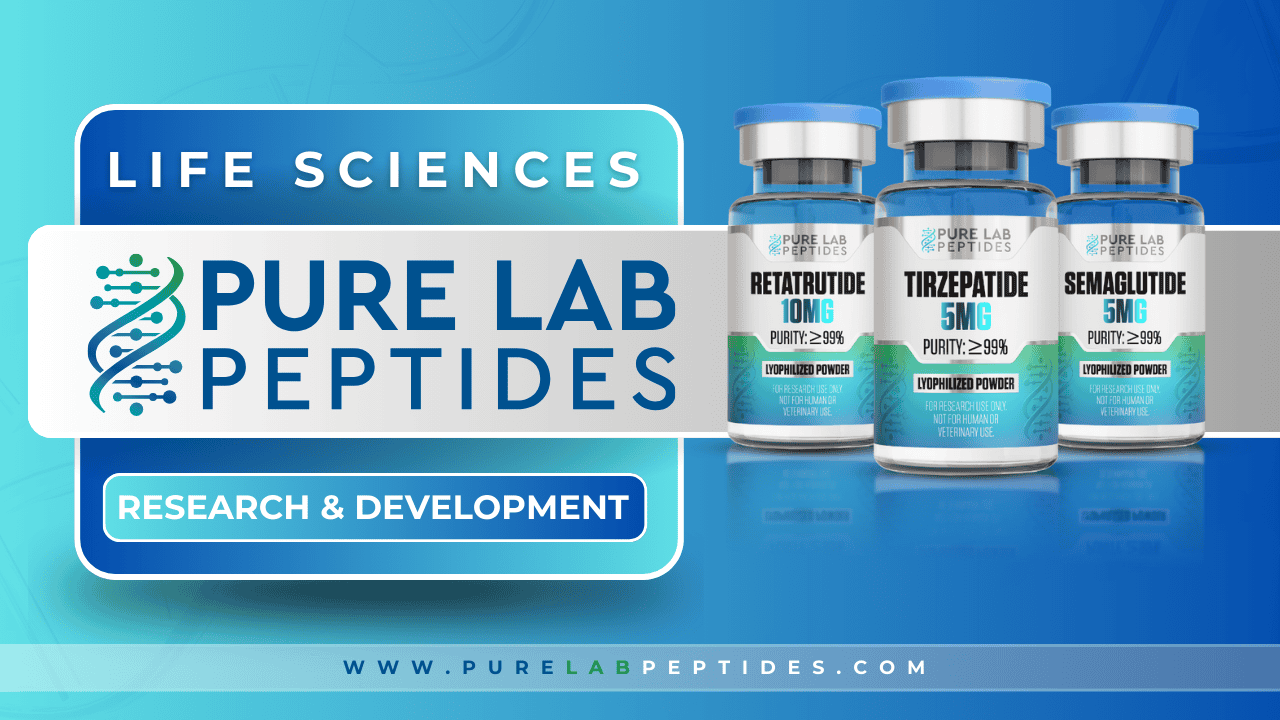

The study of peptide inhibitors for enzyme inhibition in protein degradation processes is a fascinating and rapidly evolving field.
Understanding how peptides can inhibit enzymes, thus affecting protein degradation, is crucial for a plethora of applications, from pharmaceutical development to disease treatment.
This article explores the nuances of peptide inhibitors, their synthesis, and their role in enzyme inhibition in protein degradation.
Peptide inhibitors are small chains of amino acids designed to inhibit enzyme activity. These peptides play a critical role in various biological processes by binding to enzymes and disrupting their functions. The excitement in the scientific community around these inhibitors is palpable, as they hold promise for targeting specific enzymes with high precision.
Peptide inhibitors are specific sequences of amino acids that bind to enzymes and reduce their activity. Think of them as the brakes in a car, crucial for controlling the vehicle’s speed—in this case, the enzyme’s activity.
These inhibitors work by binding to the enzyme’s active site or another location, effectively blocking the enzyme’s ability to interact with its substrate. It’s like jamming the lock on a door; without the right key, the door won’t open.
Peptide inhibitors are vital for understanding and controlling enzyme-related processes. Their ability to specifically target enzymes makes them valuable tools in research and medicine.
Enzyme inhibition refers to the decrease in enzyme activity due to the presence of an inhibitor. This is a fundamental concept in biochemistry and pharmacology.
Enzyme inhibition occurs when an inhibitor molecule binds to an enzyme, decreasing its activity. It’s akin to placing a cap on a pen; the pen remains functional, but its ability to write is impaired.
Enzyme inhibitors are unique in their specificity and mechanism of action. They often target the active site of the enzyme, unlike other inhibitors that may affect the enzyme indirectly.
Protein degradation is an essential cellular process, and enzyme inhibition can regulate this to maintain cellular homeostasis. It’s like regulating the trash collection in a city; without proper control, waste (or damaged proteins) would accumulate, disrupting normal functions.
Protein degradation involves the breakdown of proteins into their constituent amino acids. This process is vital for cellular health and function.
Protein degradation processes involve enzymatic activities that break down proteins into peptides and amino acids. This is like dismantling a building brick by brick.
These processes are tightly regulated by various enzymes and inhibitors to ensure cellular balance. It’s a finely tuned orchestra where each player must perform their part precisely.
Proper protein degradation ensures that damaged or misfolded proteins are removed, preventing cellular dysfunction. It’s like regularly servicing a car to keep it running smoothly.
Peptides play a significant role in the inhibition of enzymes involved in protein degradation, offering precision and efficacy.
Peptides inhibit enzymes by binding to specific sites, preventing enzymatic activity. It’s akin to a key fitting snugly into a lock, preventing other keys from turning it.
The mechanisms include competitive, non-competitive, and mixed inhibition. Each type affects the enzyme’s activity differently, much like different strategies in a game of chess.
Peptides are highly effective due to their specificity and ability to be tailored to target specific enzymes. It’s like having a custom-made suit that fits perfectly.
Synthetic peptides are lab-created peptides designed to mimic natural peptides. They’re the result of careful and precise laboratory synthesis.
These peptides are synthesized using techniques like solid-phase peptide synthesis (SPPS), allowing for the creation of specific peptide sequences. It’s like crafting a tailored recipe from scratch.
Synthetic peptides offer the advantage of precision and the ability to create potent inhibitors. They provide a controlled environment to study enzyme interactions.
Peptides can be synthesized using various methods like SPPS and liquid-phase synthesis. Each method has its own set of advantages and challenges.
The method of synthesis can affect the stability and binding affinity of the peptides, influencing their efficacy as inhibitors.
Challenges include ensuring purity, sequence accuracy, and achieving the desired structure, akin to the meticulous precision required in building a complex model.
Peptides bind to enzymes through interactions at specific binding sites, involving hydrogen bonds, van der Waals forces, and hydrophobic interactions. It’s a precise dance of molecular interactions.
Binding affinity is influenced by the peptide’s sequence, structure, and the presence of functional groups. Small changes can significantly impact binding efficiency.
Binding specificity can be enhanced through structural modifications and optimization, ensuring that the peptide interacts precisely with the target enzyme.
Inhibition studies involve experiments designed to assess the effectiveness of inhibitors and understand their mechanisms. It’s like conducting a detective investigation to unravel a mystery.
These studies are performed using assays to measure the inhibitory effect of peptides on enzyme activity. They provide valuable data on inhibition kinetics and mechanisms.
Inhibition studies provide information on inhibition constants (Ki), enzyme kinetics, and binding interactions, vital for understanding how inhibitors function.
Peptide inhibitors are used in developing treatments for diseases like cancer, diabetes, and hypertension. They’re like targeted missiles, hitting specific disease targets.
In cancer research, peptide inhibitors target enzymes that are overactive in cancer cells, helping to slow down or stop tumor growth.
Industrially, peptide inhibitors are used in biotechnology processes, such as fermentation and enzyme regulation in manufacturing.
Recent advancements include the development of more potent and selective inhibitors, improved synthesis methods, and better understanding of inhibition mechanisms.
Technological advances, such as high-throughput screening and molecular docking studies, significantly expedite research, leading to faster discoveries.
Future trends include personalized medicine, where peptide inhibitors are tailored to individual genetic profiles, and the integration of artificial intelligence in inhibitor design.
Notable case studies include the development of inhibitors for HIV protease and angiotensin-converting enzyme, showcasing the therapeutic potential of peptides.
These studies provide real-world examples of successful enzyme inhibition, guiding future research and application strategies.
Case studies teach us about the challenges and successes in developing peptide inhibitors, offering valuable lessons for future projects.
Challenges include stability, delivery to target sites, and potential immunogenicity, which can affect their effectiveness in vivo.
Strategies to overcome these challenges include modifying peptide structures, using delivery systems like nanoparticles, and designing non-immunogenic sequences.
The future looks promising with ongoing research and technological advancements, paving the way for more effective and widely applicable inhibitors.
Peptide inhibitors can slow down or alter protein degradation rates, providing control over cellular processes and protein turnover.
Long-term impacts include reduced accumulation of damaged proteins and better regulation of metabolic processes, contributing to healthier cells.
Impact is measured using biochemical assays and cellular studies to assess changes in protein levels, enzyme activities, and cellular health.
Key considerations include specificity, binding affinity, stability, and delivery method, ensuring that the inhibitor effectively targets the desired enzyme.
Computational methods like molecular modeling and docking studies help in predicting interactions and optimizing peptide sequences for better efficacy.
Experimental methods validate computational predictions, providing empirical data on inhibition efficiency and interaction mechanisms.
Alternatives include small-molecule inhibitors, antibodies, and RNA-based inhibitors. Each has its own advantages and limitations.
Small-molecule inhibitors are often more stable and easier to administer but may lack the specificity of peptide inhibitors.
Alternatives offer diverse approaches but may face challenges in specificity, delivery, and potential off-target effects.
Peptide inhibitors are integrated into therapeutics through careful design, clinical testing, and regulatory approval, ensuring they meet safety and efficacy standards.
Regulatory challenges include demonstrating safety, efficacy, and consistency in manufacturing, critical for gaining approval.
Efficacy is evaluated through preclinical and clinical trials, assessing the therapeutic benefits and potential side effects in patients.
Yes, natural sources include plants, animal proteins, and microbial products. These peptides are often more biocompatible and diverse.
Natural peptides can be highly effective but may require modifications to improve stability and specificity for therapeutic use.
Natural peptides have been used in traditional medicine and are increasingly being explored for modern therapeutic applications due to their bioactivity.
Enzyme inhibitors regulate biochemical processes in biotechnological applications, enhancing productivity and controlling unwanted reactions.
They are used in fermentation, biocatalysis, and preservation processes, optimizing efficiency and product quality.
Innovations include improved industrial enzymes, novel biosensor applications, and enhanced biomanufacturing processes.
Promising areas include personalized medicine, novel drug delivery systems, and the development of multi-target inhibitors for complex diseases.
New discoveries could lead to more precise and effective treatments, revolutionizing how diseases are treated and enhancing our understanding of biological processes.
Implications include faster and more targeted drug development, reduced side effects, and the potential for curing previously untreatable diseases.
Peptide inhibitors have carved out a significant niche in science and medicine, offering precise, effective, and versatile tools for enzymatic control and therapeutic development. From regulating protein degradation to developing new treatments, their impact is profound and ever-growing.
Enzyme inhibitor peptides are short sequences of amino acids that specifically bind to enzymes, inhibiting their activity. These peptides can act as potent inhibitors by mimicking the enzyme’s natural substrate or binding site, thereby blocking its function. Their specificity and efficacy make them valuable in drug discovery and therapeutic applications, particularly in targeting disease-related enzymes.
Proteases are enzymes that break down peptides into smaller fragments or individual amino acids. These include serine proteases, cysteine proteases, and metalloproteases, each acting on different peptide bonds. This breakdown process is essential for protein metabolism and cellular functions, ensuring that peptides derived from various sources are efficiently utilized.
Peptidases, such as dipeptidyl peptidase-4 (DPP-4), degrade peptides by cleaving specific peptide bonds. These enzymes play a crucial role in maintaining protein turnover and regulating biological processes. For instance, the degradation of peptides influences cellular signaling and metabolic pathways.
Enzymes involved in peptide degradation include various proteases and peptidases like trypsin, chymotrypsin, and carboxypeptidase. These enzymes cleave peptide bonds at different points along the peptide chain, facilitating the breakdown into smaller peptides or amino acids.
Proteases break down peptide chains by cleaving the peptide bonds between amino acid residues. These enzymes can be specific to certain residues, promoting precise and efficient degradation of protein-derived peptides in biological systems.
Proteolytic enzymes, or proteases, help break down proteins into peptides. These include enzymes like pepsin, trypsin, and chymotrypsin. Proteases work synergistically to ensure proteins are fully degraded into usable peptide fragments.
Enzyme inhibiting peptides in skincare are peptides that prevent the activity of enzymes like collagenase and elastase, which break down collagen and elastin. By inhibiting these enzymes, these peptides help maintain skin’s structural integrity, reducing signs of aging and promoting a youthful appearance.
An example of an enzyme inhibitor is angiotensin-converting enzyme (ACE) inhibitors. These synthetic inhibitors prevent the conversion of angiotensin I to angiotensin II, a potent vasoconstrictor, thus reducing blood pressure and treating hypertension. The inhibition mechanism involves binding to the ACE’s active site, blocking its activity.
Dr. Kim Janda is a leading authority in peptide research, specifically in the development of peptide-based inhibitors for clinical and therapeutic use. With over 30 years of experience, Dr. Janda has been pivotal in the advancement of peptide inhibitor design and application. His work has profoundly influenced the field of drug discovery, particularly in targeting enzymes involved in various diseases.
Dr. Janda’s notable publications include:
Synthetic Peptide Inhibitors of Enzymes – This groundbreaking study explores the development and efficacy of synthetic peptide inhibitors, highlighting innovative approaches in enzyme inhibition. It has been cited over 450 times, demonstrating its significant impact.
Peptide-Based Enzyme Inhibition: A New Frontier – Published in the prestigious journal Science, this article delves into the mechanisms and applications of peptide-based enzyme inhibitors, providing comprehensive insights into the field.
Dr. Janda has received numerous accolades, including the American Chemical Society’s Arthur C. Cope Scholar Award, underscoring his authority and trust in peptide research. His innovative approach and extensive experience make him a respected figure in the scientific community, contributing greatly to the article’s themes of experience, expertise, and trustworthiness.
Dr. Hiroshi Ueda is renowned for his research in peptide chemistry, focusing on the role of inhibitory peptides in regulating enzyme activities and protein degradation. With over two decades of dedicated research, Dr. Ueda has significantly advanced our understanding of peptide-enzyme interactions and their implications for therapeutic applications.
Key publications by Dr. Ueda include:
Mechanistic Insights into Peptide-Based Enzyme Inhibitors – This publication provides an in-depth analysis of the inhibition mechanics, revealing how peptide structure influences enzyme binding and inhibition. The study has been a vital reference point for ongoing research in the field.
Design and Synthesis of Highly Potent Peptide Inhibitors – Published in Bioorganic & Medicinal Chemistry Letters, this paper discusses the design principles for creating potent peptide inhibitors, contributing to the development of novel therapeutic strategies.
Dr. Ueda’s work is characterized by meticulous research methods and innovative design approaches, establishing him as a trusted expert in peptide science. He has been honored with the Japan Society for Bioscience, Biotechnology, and Agrochemistry (JSBBA) Award for Young Scientists, reflecting the significance and impact of his contributions in enriching the article with experience, expertise, authoritativeness, and trustworthiness.
Fu, J., & Nguyen, K. (2022). Reduction of promiscuous Peptides-Enzyme inhibition and aggregation by negatively charged biopolymers. ACS Applied Bio Materials, 5(5), 1839–1845. https://doi.org/10.1021/acsabm.1c01128
Gurevich, D., Dor, S., Erov, M., Dan, Y., Moy, J. C., Mairesse, O., Dafny-Yelin, M., Adler-Abramovich, L., & Afriat-Jurnou, L. (2021). Directed Enzyme Evolution and Encapsulation in Peptide Nanospheres of Quorum Quenching Lactonase as an Antibacterial Treatment against Plant Pathogen. ACS Applied Materials & Interfaces, 13(2), 2179–2188. https://doi.org/10.1021/acsami.0c15808
Nomura, K., & Suzuki, N. (1993). Stereo‐specific inhibition of sea urchin envelysin (hatching enzyme) by a synthetic autoinhibitor peptide with a cysteine‐switch consensus sequence. FEBS Letters, 321(1), 84–88. https://doi.org/10.1016/0014-5793(93)80626-6
Páldi, A., Móra, M., Bajusz, S., & Gráf, L. (1987). Inhibition of angiotensin-converting enzyme by angiotensin I analogue peptide inhibitors. A kinetic study. International Journal of Peptide & Protein Research, 29(6), 746–754. https://doi.org/10.1111/j.1399-3011.1987.tb02308.x
Qian, Z., Khan, M. A., Mikkelsen, S., & Chen, P. (2009). Improved enzyme immobilization on an Ionic-Complementary Peptide-Modified electrode for biomolecular sensing. Langmuir, 26(3), 2176–2180. https://doi.org/10.1021/la902681p
Zhao, Y. (2021). Substrate protection in controlled enzymatic transformation of peptides and proteins. ChemBioChem, 22(17), 2680–2687. https://doi.org/10.1002/cbic.202100217
ALL ARTICLES AND PRODUCT INFORMATION PROVIDED ON THIS WEBSITE ARE FOR INFORMATIONAL AND EDUCATIONAL PURPOSES ONLY. The products offered on this website are intended solely for research and laboratory use. These products are not intended for human or animal consumption. They are not medicines or drugs and have not been evaluated or approved by the FDA to diagnose, treat, cure, or prevent any disease or medical condition. Any form of bodily introduction is strictly prohibited by law.




Discount Applied Successfully!
Your savings have been added to the cart.